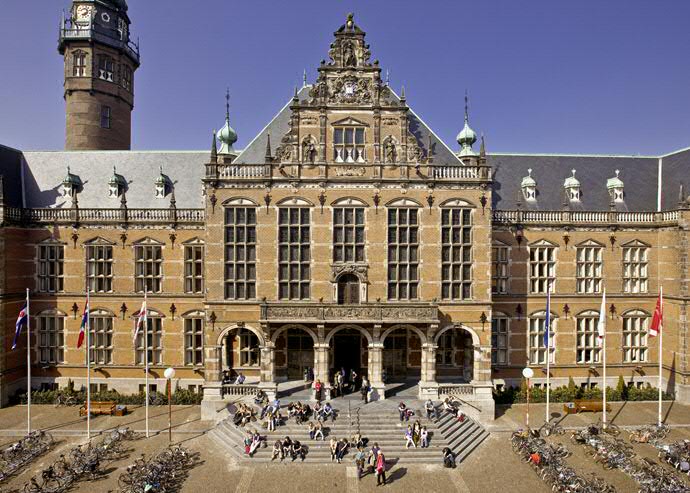Zeven Vidi’s voor toponderzoekers RUG en UMCG

NWO heeft aan zeven onderzoekers van de Rijksuniversiteit Groningen en het Universitair Medisch Centrum Groningen een Vidi-beurs toegekend. De beurzen zijn bedoeld om een eigen onderzoekslijn te ontwikkelen en een eigen onderzoeksgroep te bouwen. Een Vidi-beurs bedraagt maximaal 800.000 euro.
Vidi is gericht op excellente onderzoekers die na het promoveren al een aantal jaren succesvol onderzoek hebben verricht. De wetenschappers behoren tot de beste tien à twintig procent van hun vakgebied. Met een Vidi kunnen zij vijf jaar lang onderzoek doen. NWO selecteert de Vidi-laureaten op basis van de kwaliteit van de onderzoeker, het innovatieve karakter van het onderzoek, de verwachte wetenschappelijke impact van het onderzoeksvoorstel en mogelijkheden voor kennisbenutting. Landelijk werden in deze ronde 87 van de 509 aanvragen gehonoreerd.
Toegekende Vidi-projecten RUG en UMCG
- Prof.dr. Ming Cao, ENTEG
Een evolutionaire aanpak van coördinatie van zelfzuchtige 'agents'
Robots en sensorennetwerken, gedistribueerde energienetten en vele facetten van de samenleving kunnen worden gemodelleerd als complexe netwerken van 'agents' die zelfzuchtige beslissingen nemen die vaak in conflict zijn met de doelstellingen van de groep. Ming Cao onderzoekt methoden om deze netwerken te coördineren en uiteindelijk dergelijke sociale dilemma’s op te lossen door middel van een aanpak waarin theorie en experimenten nauw met elkaar zijn verbonden.
-
Dr. Tamara Witschge, Journalism Studies and Media
Journalistiek ondernemerschap in actie
Ondernemerschap is in opkomst in de journalistiek: In het digitale tijdperk zijn steeds meer journalisten naast het maken ook verantwoordelijk voor verkoop en verspreiding van nieuws en actualiteiten. Dit onderzoek bestudeert hoe ondernemerschap werk van journalisten beïnvloedt en welke gevolgen dit heeft voor hun taak van het informeren van burgers.
-
Dr. Anna Hirsch, Chemistry
Sneller op weg naar nieuwe geneesmiddelen
De ontwikkeling van een nieuw geneesmiddel is een uitdagend proces. De onderzoekers gaan nieuwe methoden ontwikkelen die dit proces versnellen. Deze methoden zullen de chemici toepassen om moleculen te ontdekken die tot een geneesmiddel tegen malaria zouden kunnen worden ontwikkeld.
-
Dr. Edwin Otten, Stratingh Institute for Chemistry
Goedkope elementen als basis voor katalysatoren
In hedendaagse chemische processen wordt veelvuldig gebruik gemaakt van katalysatoren op basis van schaarse edelmetalen. Op zoek naar goedkopere en duurzame alternatieven proberen de onderzoekers de eigenschappen van deze edelmetalen na te bootsen met veel-voorkomende, goedkope elementen.
-
Dr. Albert Guskov, Membrane Enzymology
Nieuw licht op metaal transport
Nikkel en kobalt zijn essentiële sporenelementen. Strikte regulering van de cellulaire opname is nodig omdat de elementen toxisch zijn bij verhoogde concentraties. Ik zal de structuur van transporteiwitten die deze opname katalyseren bestuderen met een spectaculaire nieuwe techniek. Dit werk kan leiden tot de ontwikkeling van nieuwe antibiotica.
-
Dr. Wiktor Szymanski, UMCG - Radiology
Besturing van geneesmiddelen met licht
Geneesmiddelen zijn vaak actief buiten het aangetaste gebied, waardoor ze bijwerkingen en toxiciteit in de omgeving veroorzaken. Het doel van dit onderzoek is om methoden te vinden om licht te gebruiken teneinde de activiteit van geneesmiddelen alleen te richten op het gewenste gebied en binnen de gewenste tijd.
-
Dr. Hiddo Lambers Heerspink, UMCG - Department Clinical Pharmacy and Pharmacology
Waarom reageren patiënten met type 2 diabetes verschillend op therapieën?
Sommige patiënten met type 2 diabetes en nierziekte reageren heel goed op de voorgeschreven geneesmiddelen, anderen niet. De onderzoekers bestuderen de onderliggende mechanismen waarom patiënten zo verschillend reageren om in de toekomst op basis van kenmerken van elke patiënt het juiste geneesmiddel voor de juiste patiënt te selecteren.
Meer nieuws
-
29 januari 2026
Microplasticonderzoek - opgeblazen nieuws of een echt gevaar?
-
27 januari 2026
ERC Proof of Concept grant voor Maria Loi
